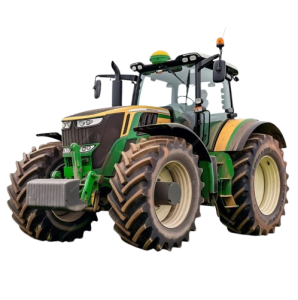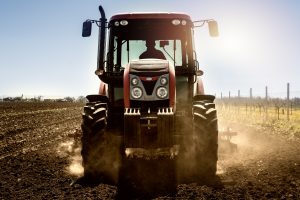Small farms have unique needs. They require equipment that’s efficient, versatile, and above all, affordable. This workhorse of the farm is crucial for a variety of tasks. From tilling and pillowing to hauling and more, a good tractor can make all the

difference in the productivity of a small farm.
But how do you find a tractor that’s both high-quality and budget-friendly?
This guide will help you navigate the world of affordable tractors. We’ll explore key factors to consider, compare new and used tractor prices, and even delve into financing options. By the end, you’ll be well-equipped to make an informed decision on the best affordable tractor for your small farm.
Understanding the Value of Tractors for Small Farms
Tractors are essential for boosting farm efficiency. They save time and reduce the labour needed for various tasks. Without them, many farm operations could become overwhelming or inefficient.
Besides their practical uses, tractors also enhance a small farm’s productivity. They allow farmers to diversify their activities, enabling the handling of multiple jobs. A small investment in the right tractor can significantly increase a farm’s yield and profitability. Understanding this value highlights why choosing the right tractor is so crucial for small-scale farming success.
Key Factors to Consider When Choosing a Tractor
Choosing the right tractor for your small farm is essential. A thoughtful selection process ensures that the equipment will meet your needs. Key factors include the size, power, and versatility of the tractor.
Understanding what you need from a tractor can help narrow down choices. For example, the right horsepower is crucial for various farming tasks. Additionally, the tractor’s size should match the size of your farm, ensuring easy manoeuvrability.
Here’s a list of factors to consider:
- Tractor size: Ensure it fits your farm size and storage space.
- Horsepower: Aligns with the tasks you need to perform.
- Versatility: Look for compatibility with various attachments.
- Maintenance and parts availability: This affects long-term costs.
- Ergonomics: Comfort during operation matters for productivity.
Keeping these aspects in mind will help you make a wise investment for your small farm’s success. Consider each factor carefully, and balance your needs with budget constraints to find the best tractor for your farm.
What Makes a Tractor Affordable?
Affordability in tractors is determined by more than just the initial purchase price. It’s crucial to also consider ongoing costs such as maintenance, repairs, and fuel efficiency. These elements play a significant role in the overall expense of owning a tractor.
Long-term value should be your focus when evaluating a tractor’s affordability. An affordable tractor offers reliable performance without frequent breakdowns, has reasonable repair costs, and uses fuel efficiently. Additionally, consider the resale value, which can impact the total cost of ownership over time. Balancing these factors will help you find a tractor that’s both cost-effective and meets your farming needs.
Top Brands Offering Affordable Tractors
When searching for affordable tractors, several brands stand out for their quality and reasonable pricing. These manufacturers offer models that meet the needs of small farmers without compromising on performance. They strike the right balance between features, durability, and cost.
Here’s a list of popular brands known for budget-friendly tractors:
- John Deere: Renowned for its reliable and sturdy tractors, suitable for various small farm tasks.
- Kubota: Offers compact and sub-compact models great for manoeuvrability and versatility.
- Mahindra: Known for cost-effective models with low maintenance needs.
- New Holland: Provides budget-friendly models with good power and fuel efficiency.
These brands ensure you get a product that lives up to expectations while fitting your budget. They also typically provide excellent after-sales service and parts availability. Choosing a tractor from a well-known brand can reduce the long-term risk of breakdowns and difficulties in finding replacement parts, maximizing your investment.
New vs. Used Tractor Prices: What’s Best for Your Budget?
Deciding between a new or used tractor depends on your budget and long-term needs. New tractors boast the latest features, warranties, and technology. However, they come with a higher price tag, which might not suit every small farm’s budget constraints.
Used tractors, on the other hand, offer significant savings upfront. They provide an opportunity to own a reliable machine without the high cost of a new one. It’s crucial to assess the condition and history of a used tractor before purchase. This ensures you don’t end up with frequent repair bills, negating initial savings.


Essential Tips for Buying a Used Tractor
Buying a used tractor can be a great way to save money, but it requires careful consideration. There are key points to evaluate to ensure you make a wise purchase. Checking these aspects can help avoid costly pitfalls.
Here’s what to consider when buying a used tractor:
- Inspect for Wear: Look at tires, belts, and hoses for signs of wear.
- Engine Condition: Check for oil leaks and listen for unusual noises.
- Hours of Use: Lower hours generally mean less wear and tear.
- Operational History: Ask for maintenance records and accident history.
Being thorough in your inspection increases your chances of getting a dependable machine. Don’t rush the process; ensuring the tractor’s reliability is vital for your farm.
Maintenance and Longevity: Keeping Costs Down
Regular maintenance is crucial to extending a tractor’s life and reducing costs. By adhering to a maintenance schedule, you can prevent expensive repairs and ensure smooth operations. Regular oil changes, filter replacements, and tire checks are essential practices.
Maintaining your tractor also involves proper storage and care during off-seasons. Protecting it from the elements can significantly reduce wear and tear. Investing time in upkeep not only cuts down on long-term expenses but also ensures your tractor remains a reliable asset for your small farm’s demands.
Conclusion:
Choosing the right tractor for your small farm requires careful consideration of your needs, budget, and available options. By evaluating key factors such as cost, brand reliability, and maintenance, you can make a wise investment that boosts productivity and supports your farming goals. A well-researched decision ensures long-term value.


